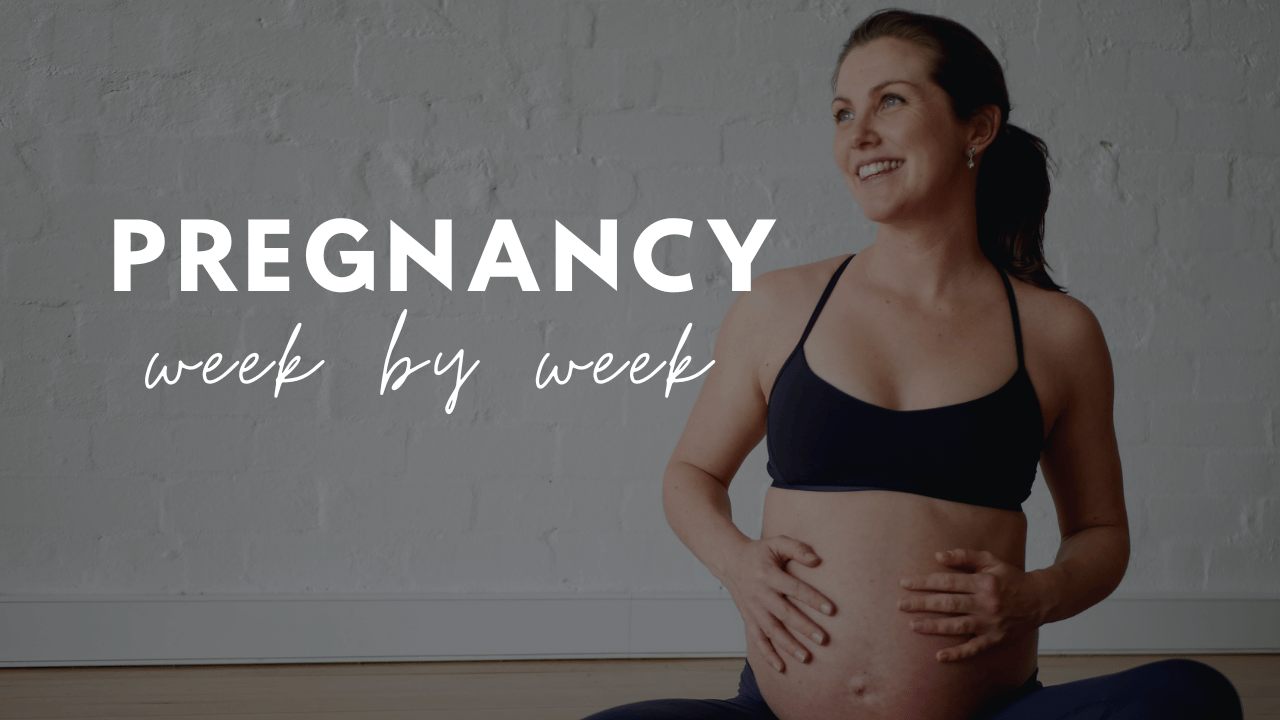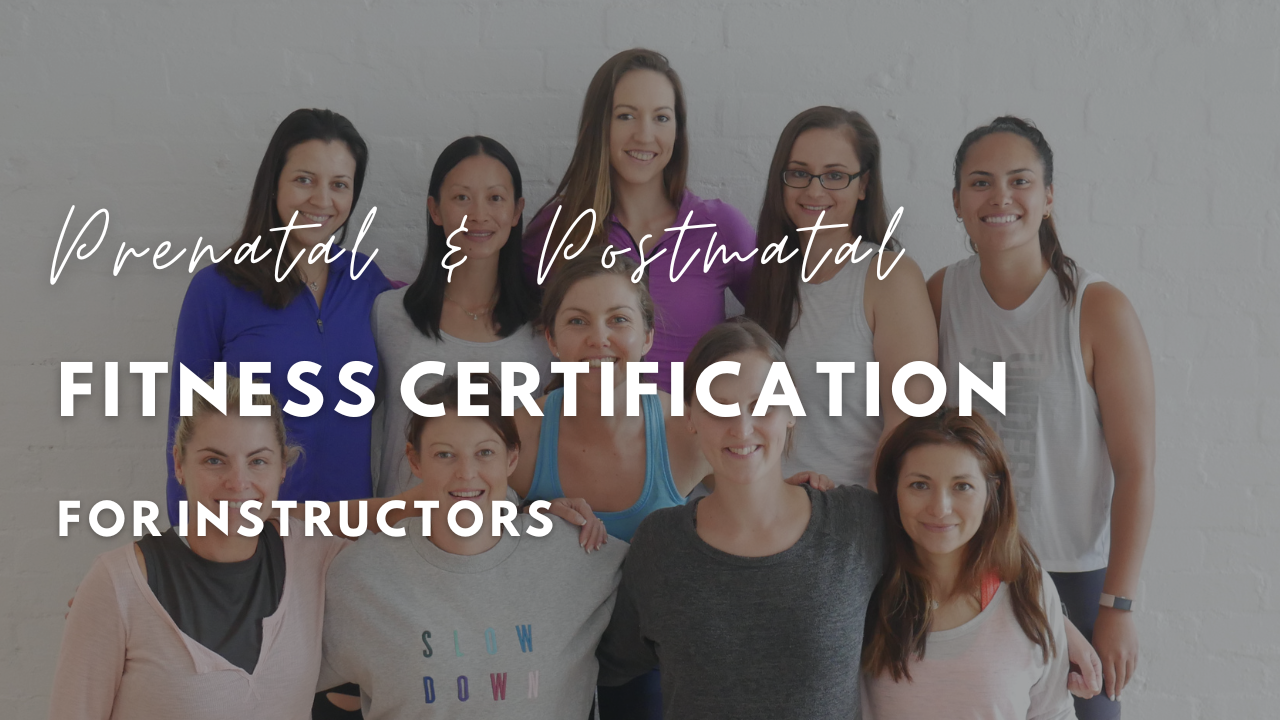When Should You Stop Working Out While Pregnant?

When Should You Stop Working Out While Pregnant?
You should stop exercising during pregnancy straight away if you feel unwell or are in pain. It is so important that you listen to your body as you know your body better than anyone else!
Always tell your midwife or doctor if you are worried about any specific aches, pains or other issues that have started.
Pay attention to any of the following warning signs when you exercise. If you have any of them, stop and call your obstetrician.
When Should I Stop Exercising During Pregnancy?
Remaining active during pregnancy is crucial for both physical and mental well-being. Regular exercise can help alleviate symptoms like back pain, improve mood, and even prepare the body for childbirth.
However, it's essential to approach exercise during pregnancy with caution and awareness.
ACOG Guidelines 2026
ACOG list of when you must stop exercising immediately and contact your OB/midwife/doctor right away. These are the official ACOG, SMFM, PregActive and CDC red-flag warning signs - treat them seriously.
When to Stop Exercising - if you have:
1. Chest pain - Heart or lung issue (rare but serious).
2. Bleeding from the vagina
3. Calf pain or swelling - Possible deep vein thrombosis (blood clot)
4. Feeling dizzy or faint - Could be low blood pressure, dehydration, anemia, or heart issue.
5. Shortness of breath before starting exercise - Possible anemia, asthma flare, or blood clot in lung
6. Headache
7. Muscle weakness
8. Regular, painful contractions of the uterus
9. Fluid gushing or leaking from the vagina - Could be ruptured membranes (water broken).
10. You are having lots of Braxton Hicks 'practice' contractions - Possible preterm labor.
11. You have any vaginal bleeding - Could be placental abruption, placenta previa, or preterm labor.
12. It is very hot and humid
13. You feel unwell
14. You have a deep pain in your stomach or pelvis
15. You have a weak cervix
16.You have a low-lying placenta ( placenta praevia )
Modify or Pause Exercise
These don't always require stopping forever, but you should pause and get cleared before resuming:
1. Coning/doming of the abdomen during core work.
2. Leaking urine with impact or coughing.
3. Severe round-ligament pain or pubic-bone pain.
4. Extreme fatigue or nausea after light exercise.
Exercise has its Benefits when Pregnant
Many pregnant women struggle to balance their desire to stay active with the fear of harming their unborn baby or themselves. Common concerns include the risk of injury, miscarriage, or preterm labor.
Additionally, physical changes like a growing belly, weight gain, and hormonal fluctuations can make exercising uncomfortable or even painful.
These anxieties can lead to feelings of frustration and confusion, making it difficult for expectant mothers to know where to start or how to proceed.
Morning Sickness
Some women may experience severe morning sickness, exhaustion, or pelvic pain that makes it challenging to engage in physical activity.
Others may have underlying medical conditions, such as hypertension or gestational diabetes, which can further complicate their exercise routine.
Furthermore, the lack of guidance and conflicting information from healthcare providers, fitness professionals, or online sources can add to the confusion.
Safe Exercise is a Must
Exploring safe workout practices during pregnancy is critical. The American College of Obstetricians and Gynecologists recommends exercising at least three times a week, for at least 20-30 minutes, as long as there are no underlying health concerns.
Listen to Your Body
However, it's essential to listen to your body and stop exercising if you experience vaginal bleeding, contractions, or dizziness.
Activities like contact sports, scuba diving, and high-impact aerobics may be unsafe and should be avoided altogether.
Not All Exercises are Safe
Pregnant women should also be cautious when engaging in exercises that involve bending, twisting, or lifting, as these can put unnecessary strain on the back and joints.
Activities that require lying flat on the back, such as prenatal yoga or Pilates, may also be problematic after the first trimester.
Chat to Your Doctor
It's always best to consult with a healthcare provider or a prenatal fitness specialist to create a personalized workout plan that suits your needs and ensures the safety of both you and your baby.
You May Have to Stop Exercising
In some critical situations, it may be unsafe to continue exercising.
For instance, if you experience vaginal bleeding, severe abdominal pain, or contractions, you should stop immediately and consult your healthcare provider.
Additionally, women with high-risk pregnancies, such as those carrying multiples or having a history of miscarriage, may need to avoid certain exercises or modify their routine altogether.
Your Baby's Wellbeing
It's crucial to prioritize your health and your baby's well-being by listening to your body and being aware of any warning signs.
If you're unsure about your exercise routine or have concerns, it's always best to err on the side of caution and consult a medical professional.
Remember, every pregnancy is unique, and what works for someone else may not work for you.
Exercise during Pregnancy is Beneficial
Staying active during pregnancy is possible and beneficial, but it's crucial to approach exercise with caution and awareness.
By understanding the guidelines for safe workouts, being aware of potential risks, and listening to your body, you can enjoy the numerous benefits of exercise while ensuring a healthy pregnancy.
Prioritize You!
It's crucial for expecting mothers to prioritize their health and well-being, but it can be confusing to know when it's time to take a break from physical activity.
I will cover the signs and symptoms that indicate it may be time to stop exercising, as well as provide helpful tips for modifying your workout routine as your pregnancy progresses.
Talk to Your Doctor
Remember, always consult with your healthcare provider before making any decisions about your exercise regimen during pregnancy.
Your safety and the health of your baby should always come first.
This comprehensive guide covers the signs and symptoms that indicate it's time to take a break, ensuring both your health and your baby's wellbeing.
From understanding the physical changes during pregnancy to recognizing warning signs that may require you to stop exercising, I will provide expert advice and tips tailored for every stage of pregnancy.
Learn about safe activities, the benefits of staying active, and when to consult with your healthcare provider.
Whether you’re a fitness enthusiast or just starting out, this video is designed to empower you with the knowledge to make informed decisions about your exercise routine during pregnancy.

When to Stop Exercising During Pregnancy
It is safe to stay active right up to the end of your pregnancy if you are having an uncomplicated pregnancy. But there are some things to look out for when you are exercising.
Whatever mode of exercise you choose when pregnant; stop whenever you are experiencing any of the above symptoms.
Which Exercises are Safe?
Many women face confusion about which exercises are safe and when they should modify or halt their routines as their pregnancy progresses.
Exercise during pregnancy can have numerous benefits, such as improved mood, weight management, and a reduced risk of certain pregnancy complications. However, it's essential to recognize when to stop or adjust your exercise routine to ensure a healthy pregnancy.
As your body undergoes significant changes, you may need to reassess your physical activity to accommodate these transformations.
Don't Exercise through Pain
Some women may experience discomfort or pain during exercises they previously enjoyed, leading them to wonder when it's time to stop or modify their routines.
Moreover, certain underlying medical conditions or pregnancy complications can also impact your ability to exercise safely.
ACOG
The American College of Obstetricians and Gynecologists, or ACOG, advises pregnant women to engage in regular physical activity, as long as they're healthy and don't have any pregnancy complications.
According to ACOG, women can typically continue exercising at a moderate intensity, with some modifications, throughout their pregnancies.
However, it's crucial to remember that every pregnancy is unique, and it's essential to consult with your healthcare provider to determine the best exercise plan for your individual situation.
Not All Exercises are Safe
Some exercises may be more risky during pregnancy, such as activities with a high risk of falls or abdominal trauma.
Contact sports, high-impact exercises, and activities that involve bending or twisting may also be contraindicated during certain stages of pregnancy.
Additionally, exercising in extreme temperatures, at high altitudes, or without proper hydration can also pose risks to your health and your baby's well-being.
Staying informed about the guidelines and recommendations for exercising during pregnancy can help you make informed decisions and prioritize your health.
Top 3 Signs When to Stop Exercising
The top three signs that you should immediately stop exercising and consult your healthcare provider.
1. The first sign is severe abdominal pain or cramping, which can indicate a potential complication that requires immediate attention.
2. The second sign is vaginal bleeding or spotting, which may signal a problem with the placenta or the baby's development.
3. The third sign is difficulty breathing or dizziness, which can be indicative of a circulatory issue or a problem with your baby's growth.
If you experience any of these symptoms, it's essential to stop exercising and consult your healthcare provider promptly.
Summary
In summary, it's vital to listen to your body and prioritize your health and your baby's health while staying active during pregnancy.
Exercise can be an excellent way to maintain your physical and mental well-being, but it's crucial to be aware of your body's limitations and adapt your routine accordingly.





